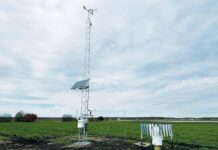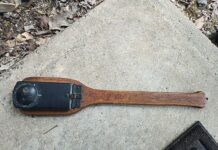I heard a snippet of a conversation while dashing through the grocery store not long ago.
A woman, visiting from far away, judging by her New England accent, made the comment to another woman, “I am really considering moving here. I get so tired of the city, and would love to move where I can be left alone and nobody bothers me.”
Had to laugh. I had to chuckle, as I am reading a book right now titled, If You Lived Here, I’d Know Your Name: news from small-town Alaska, by Heather Lende. The author tells that in small towns, people are more likely to know exactly what is going on in your life, not less.
People are inclined to want to know every detail of your being, not less. She tells of moving 90 miles north of Juneau, accessible mainly by water or air, and then only when the weather is good.
Lende is a reporter for the local weekly newspaper in tiny Haines, Alaska, and her job includes writing all of the obituaries. She calls on the families who have lost a loved one, wanting to get every detail correct for their final newspaper piece.
‘Off the record.’ She said that a very high percentage of what people tell her about their dearly departed is “not for publication,” and I nodded with great understanding because I have heard that same thing a thousand times over the years in the newspaper business.
This author tells of the huge difference in finding employment in small town Alaska compared to their early New England days.
Her husband, Chip, who holds a master’s degree in forestry from Yale, found work cleaning movie theaters late at night and splitting firewood by the cord during the day.
When she applied for a receptionist position at a downtown hotel, the woman conducting the interview reviewed her impressive resume – Quaker prep school, Middlebury College graduate, sailing instructor on Long Island Sound.
Not impressed. This woman snapped her gum and said, “But, honey, what can you do?” She didn’t get the job.
Small town America isn’t quite so impressed by a long list of credits, and the mentality isn’t to pay great tribute to an incredible education so much as to focus on real accomplishments – the kind that take elbow grease and thinking quickly on your feet.
Simply surviving in Haines, Alaska, takes a whole lot of both. In the tiny cabin that Heather and Chip built, they now have a little electricity.
Chip attached a generator to an exercise bike that has a battery wired to it so that when you pedal you charge it enough to listen to a small CD player and radio. A small reading light is attached to it.
Primitive. Mostly, they use kerosene lamps and propane wall lights. They figured out a way to pump water from the lake to a holding tank in the eaves, giving gravity-fed running water in the summer. In the winter, water is hauled in buckets from a nearby stream.
This is their “getaway” cabin, about 8 miles from their year-round home. She mentions that they don’t live there, but they are crazy enough to want to. Because sometimes, you just want to get away from people who know every single thing about you.
No where to hide. Ah, small-town life … where everybody knows your name, and maybe even what you ate for breakfast at the local diner!
Get 4 Weeks of Farm and Dairy Home Delivered












